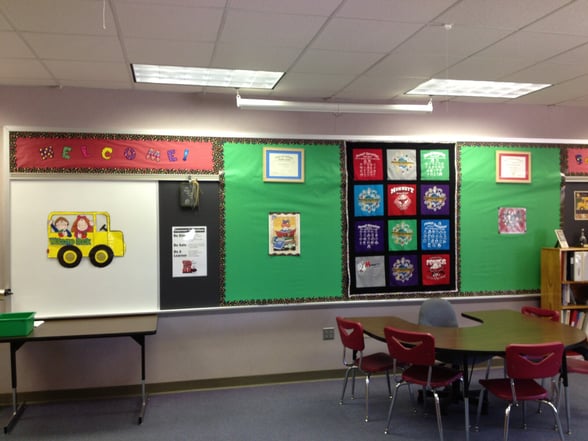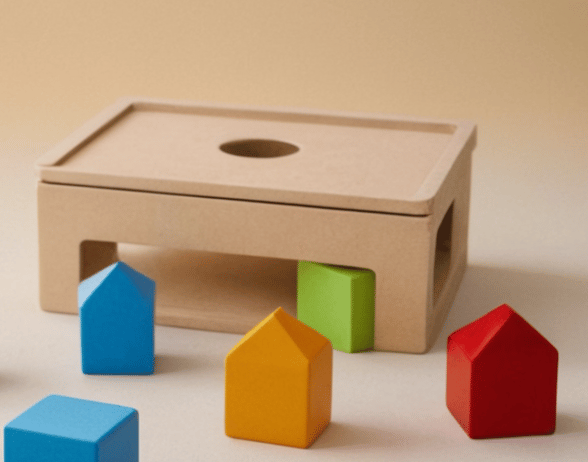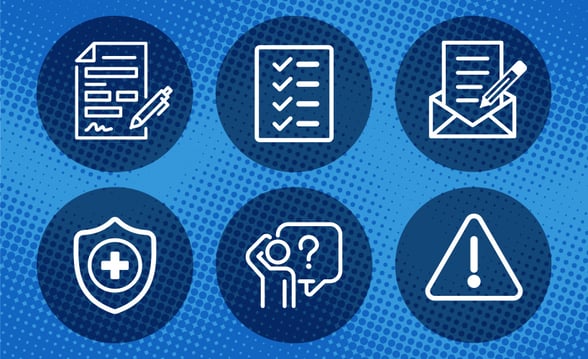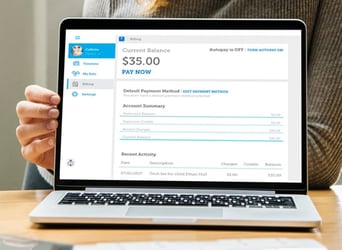
In this comprehensive guide, we'll dive into the world of preschool assessments, exploring their importance, types and best practices for implementation. Discover how to create individualized assessment plans, communicate with families and support your fellow educators in the process. By the end of this article, you'll have a solid foundation in the preschool assessment process and be equipped with tools to foster your students' growth and success.
Table of Contents
- What Are the Key Developmental Areas Assessed in Preschool?
-
How to Create Individualized Assessment Plans for Preschool Students
- Free Printable Templates and Samples for Your Preschool
What Is the Importance of Assessments in Preschool?

Assessment plays a crucial role in early education, serving as a vital tool for educators to track developmental skill progress, identify a child's needs and shape teaching strategies. As the National Association for the Education of Young Children (NAEYC) states, "Assessment of young children's progress and achievements is ongoing, strategic and purposeful."
Tracking Developmental Progress
Regular assessments enable educators to monitor children's growth across various domains, ensuring they are meeting key milestones. According to NAEYC, "The primary purpose of assessments is to help educators determine a child's strengths and areas for growth so they can plan appropriate curriculum and individualize instruction."
Identifying Needs
Assessments help identify areas where children may require additional support or intervention. The Colorado Department of Education emphasizes that "the purpose of early childhood assessment is to learn about the development of individual children in order to make good decisions about how to support and enhance their learning and development."
Shaping Teaching Strategies
Assessment program outcomes guide curriculum design and personalized learning experiences. By understanding each child's unique needs and abilities, educators can adapt their teaching approaches to maximize learning and development.
What Types of Assessments Are Used in Preschools?

Preschools employ a variety of formal and informal assessment methods to gain a comprehensive understanding of each child's development and learning and any occupational issues. Let's explore the common types of assessments used in early childhood education.
Types of Assessments
Each type of assessment serves a specific purpose and provides valuable insights into a child's behavior, growth and needs. Let's explore the different types of assessments used in early childhood education and their importance.
Performance Assessments and Portfolios
Performance assessments and portfolios are powerful tools that evaluate children's skills and knowledge through authentic tasks, projects or work samples. These assessments provide a more comprehensive picture of a child's abilities and progress over time. As Acadecraft, an established provider of educational materials, notes, "Performance-based assessments are designed to assess a child's skills, knowledge and abilities through real-world tasks and activities."
Examples of performance assessments and portfolios include:
- Observing a child's problem-solving skills during a block-building activity
- Evaluating a child's creativity and fine and gross motor skills through artwork
- Assessing a child's language development through storytelling or role-playing
- Collecting writing samples to track progress in emergent literacy skills
The importance of performance assessments and portfolios lies in their ability to capture a child's applied knowledge and skills in meaningful contexts. They provide educators with a more nuanced understanding of a child's strengths and areas for growth, allowing for targeted support and individualized, developmentally appropriate learning experiences.
Screenings
Screenings are brief assessments used to identify potential developmental delays or concerns in young children. Examples of common screening tools include:
- Ages and Stages Questionnaires (ASQ)
- Battelle Developmental Inventory (BDI)
- BRIGANCE Early Childhood Screens
- Denver Developmental Screening Test (DDST)
The importance of screenings lies in their ability to detect potential developmental issues early on, enabling teachers and parents to provide timely intervention and support. Early identification and intervention can significantly improve outcomes for children with developmental delays or disabilities.
Formative Assessments
Formative assessments are ongoing and embedded in the learning process. They provide educators with real-time feedback on children's understanding and progress, allowing for immediate adjustments to instruction. Formative assessments may help educators identify areas where children may need additional support or to be challenged, enabling them to adapt their teaching strategies accordingly.
The importance of formative assessments lies in their ability to:
- Inform instructional decisions in the moment
- Provide targeted feedback to children
- Encourage self-reflection and self-assessment
- Foster a growth mindset and continuous improvement
Summative Assessments
Summative assessments are typically conducted at the end of a unit, lesson or learning period to evaluate what children have learned. These formal assessments provide a snapshot of a child's achievement at a specific point in time and help determine whether learning goals have been met.
The importance of summative assessments lies in their ability to:
- Measure children's mastery of skills and knowledge
- Inform educators on future instructional planning
- Communicate progress to families and stakeholders
- Identify areas for curriculum improvement
Interim Assessments
Interim assessments bridge the gap between formative and summative assessments, providing periodic checkpoints to monitor children's growth and progress over time. These assessments are typically administered at regular intervals throughout the year, such as quarterly or bimonthly.
The importance of interim assessments lies in their ability to:
- Track children's development across multiple time points
- Identify trends and patterns in learning
- Inform instructional adjustments and interventions
- Facilitate data-driven decision-making
As Paper Pinecone, a leading directory for daycares, preschools and before/after school programs, explains, "Educators should monitor children and assess their development at scheduled intervals through formal means and unscheduled intervals through daily observation." This multifaceted approach, combining formative, summative and interim assessments, provides a comprehensive picture of each child's unique learning journey.
Other Types of Assessments
In addition to the assessments mentioned above, preschools may also use the following types of assessments:
-
Diagnostic Assessments: These assessments are used to identify specific learning difficulties or disabilities, such as speech and language disorders or developmental delays. Diagnostic assessments provide in-depth information to guide targeted interventions and support services.
-
Norm-Referenced Assessments: These assessments compare a child's performance to that of a larger group of children of the same age or grade level. Norm-referenced assessments, such as the Peabody Picture Vocabulary Test (PPVT), provide information about a child's relative learning strengths and weaknesses compared to their peers.
-
Criterion-Referenced Assessments: These assessments measure a child's performance against a set of predetermined criteria or learning standards. Criterion-referenced assessments, such as the Work Sampling System (WSS), help educators determine whether a child has mastered specific skills or knowledge.
By using a combination of assessment types, preschools can gather a wealth of information about each child's development, learning and needs. This comprehensive approach allows educators to create individualized learning plans, communicate effectively with families and continuously improve their instructional practices to support every child's success.
How to Conduct Preschool Assessments Effectively

Standardized assessment tools are essential for reliable and consistent evaluation of children's development in preschool settings. When selecting and implementing standardized testing tools, consider the following factors:
-
Age-appropriateness
- Ensure the assessment tool is designed for the specific age group of the children being evaluated.
- Consider the developmental milestones and expectations for the age range.
-
Alignment with learning goals
- Choose assessment tools that align with the preschool's curriculum and learning objectives.
- Evaluate how well the tool measures the skills and knowledge emphasized in the program.
-
Ease of use and administration
- Select tools that are user-friendly and easy to administer.
- Consider the time and resources required for training staff and conducting assessments.
-
Validity and reliability
- Opt for assessment tools with established validity and reliability.
- Research the tool's psychometric properties and evidence of effectiveness.
-
Objectivity and fairness
- Use standardized tools to provide objective data for tracking progress and identifying areas of concern.
- Ensure the tools are free from bias and provide equal opportunities for all children to demonstrate their abilities.
Implementing Informal Assessment Methods
Informal assessment methods complement standardized tools by providing valuable insights into children's abilities and behaviors in authentic settings. These methods allow educators to observe and record children's development holistically and in context. When implementing informal assessment methods, consider the following:
-
Play-based assessment
- Observe children's skills, knowledge and problem-solving abilities during play activities, in the classroom and on the playground.
- Use play-based assessment to evaluate social-emotional development, language skills and cognitive abilities.
-
Naturalistic observation
- Observe children's behaviors and interactions in their natural learning environment.
- Record observations using anecdotal notes, checklists or video recordings.
-
Work samples and portfolios
- Collect and analyze children's work samples, such as drawings, writing or projects.
- Use portfolios to document progress over time and showcase children's achievements.
-
Parent and family input
- Gather information from parents and caregivers about children's development and behaviors at home.
- Use questionnaires, interviews or informal conversations to gain additional insights.
-
Teacher-child interactions
- Engage in purposeful interactions with children to assess their understanding and skills.
- Use questioning, prompts and discussions to elicit children's thinking and reasoning.
Examples of informal assessment methods in preschool settings include:
- Observing children's social interactions during free play
- Documenting children's linguistic development through conversations and storytelling
- Analyzing children's artwork to assess fine motor skills and creativity
- Conducting parent interviews to gather information about children's interests and experiences
Gathering Information through Observational Checklists
Observational checklists are powerful tools for systematic observation and documentation of children's behaviors and milestones. By creating checklists that align with developmental expectations, educators can efficiently record and track each child's progress.
Preschool Assessment Checklist Student's Name: ___________________ Date: _____________
| Skill Area | Skill Description | Yes | Limited | No | Comments |
| Language Skills | |||||
| Understands and follows simple instructions | |||||
| Can express needs and wants verbally | |||||
| Recognizes and names common objects | |||||
| Participates in rhymes and songs | |||||
| Recognizes some letters and writes name | |||||
| Cognitive Skills | |||||
| Recognizes basic colors and shapes | |||||
| Can count to at least 10 | |||||
| Understands simple concepts | |||||
| Can solve simple puzzles | |||||
| Shows curiosity and asks questions | |||||
| Fine Motor Skills | |||||
| Can use scissors with help | |||||
| Holds pencil or crayon properly | |||||
| Can build a tower of blocks | |||||
| Completes simple puzzles | |||||
| Can button and unbutton | |||||
| Gross Motor Skills | |||||
| Can jump, run and climb | |||||
| Participates in group games | |||||
| Can balance on one foot | |||||
| Throws, catches and kicks a ball | |||||
| Social-Emotional | |||||
| Plays well with others | |||||
| Can take turns and share | |||||
| Shows empathy | |||||
| Can follow rules and routines | |||||
| Expresses emotions verbally | |||||
| Self-Care Skills | |||||
| Uses the toilet independently | |||||
| Washes hands and manages basic hygiene | |||||
| Can eat using utensils | |||||
| Dresses and undresses with assistance | |||||
| Understands safety rules | |||||
| Creative & Play | |||||
| Engages in imaginative play | |||||
| Enjoys drawing, painting, crafting | |||||
| Participates in music and dance | |||||
| Uses toys appropriately |
Vanco offers a free observational assessment template that preschools can use if they don't already have one: Preschool Standards Assessment Checklist
Creating a Supportive Assessment Environment
To obtain accurate and authentic assessment results, it's crucial to create a comfortable and familiar environment for children. Strategies for fostering a supportive assessment setting include:
- Conducting assessments in the child's regular classroom or play area
- Using familiar materials and activities
- Maintaining a positive and encouraging attitude
- Minimizing distractions and disruptions
What Are the Key Developmental Areas Assessed in Preschool?

Preschool assessments cover a wide range of developmental domains to ensure a comprehensive evaluation of each child's growth and learning. Let's explore the key areas assessed in early childhood education.
Assessing Fine Motor Skills
Fine motor development and skill assessments evaluate children's ability to manipulate small objects, use writing tools and perform tasks requiring hand-eye coordination. Examples of activities used to gather and assess information on fine motor skills include:
- Buttoning and zipping clothing
- Stringing beads
- Drawing and coloring
- Cutting with scissors
Evaluating Language Development
Language development assessments examine children's receptive and expressive language skills, including vocabulary, grammar and comprehension. Educators assess language development through:
- Conversations and discussions
- Storytelling and retelling
- Following verbal instructions
- Answering questions
Screening for Developmental Delays in Young Children
Early detection of developmental delays is crucial for providing early intervention and support. Preschools use screening tools to identify potential concerns in areas such as cognitive development, social and emotional development, skills and adaptive behavior. The "Selected Developmental Screening Tools: A Resource for Early Educators" guide explains, "Developmental screening is the first step in identifying children who may have a delay or disability and need further evaluation."
Speech Assessments
Speech assessments evaluate children's articulation, fluency and voice quality. Educators simply observe children's speech patterns during conversations, storytelling and other verbal activities to identify any concerns or areas for improvement.
Early Math Skills Assessments
Assessing early math skills involves evaluating children's understanding of basic mathematical concepts, such as counting, sorting, comparing and patterns. Educators use hands-on activities, games and observational checklists to monitor children's progress in early math skills.
How to Create Individualized Assessment Plans for Preschool Students
Every child is unique, and creating individualized assessment plans allows educators to tailor their evaluation strategies to each child's unique needs and abilities. Here's how to develop and implement personalized assessment plans.
Identifying Strengths and Weaknesses in Development
Analyze assessment data to identify each child's strengths and areas for improvement. Look for patterns and trends in their performance across various domains and use this information to guide your instructional planning and support strategies.
Administering Appropriate Educational Activities for Assessment
Design and implement activities that both assess and support learning and development. Choose activities that align with the child's interests, learning style and developmental level. Regularly evaluate the effectiveness of these activities and make adjustments as needed.
Where to Find Assessment Tools and Templates
-
2care2teach4kids:
- Website: Assessment Forms - Free Printable Templates -2care2teach4kids.com
- Description: Offers a variety of free printable assessment forms for early childhood educators
-
Teachers Pay Teachers (TPT):
- Website: https://www.teacherspayteachers.com/Browse/Price-Range/Free/Search:assessment
- Description: Provides a range of free assessment resources created by educators, including templates and sheets
-
Education.com:
- Website: https://www.education.com/resources/assessment/
- Description: Offers free assessment resources for various subjects and age groups, including early childhood education
The Role of Educators and Families
Effective communication between educators and families is essential for ensuring a cohesive approach to supporting children's development. Strategies for communicating evaluation outcomes to families include:
- Scheduling regular parent-teacher conferences
- Providing written progress reports and updates
- Sharing portfolios and work samples
- Encouraging open dialogue and collaboration
Evaluating and Supporting Educators
Evaluating and supporting educators is crucial for maintaining high-quality preschool programs. The process of teacher evaluation involves:
- Setting clear performance expectations
- Conducting regular observations and providing feedback
- Offering professional development opportunities
- Encouraging self-reflection and goal-setting
Tools and forms for documenting educator performance and development include observation checklists, self-evaluation forms and professional growth plans.
Free Preschool Teacher Evaluation Form
Vanco understands the challenges faced by preschools and has developed dozens of free templates to save educators time and effort. In addition to their preschool management software, which streamlines administrative tasks, Vanco offers a free Preschool Staff Evaluation Form to support educator development.
FAQs
How do you evaluate preschoolers?
Evaluating preschoolers involves a multistep process:
- Determine the assessment purpose and goals.
- Select appropriate assessment tools and methods.
- Gather data through observations, portfolios and screenings.
- Analyze the data to identify strengths and areas for improvement.
- Use the findings to inform instructional decisions and communicate with families.
How do you write a preschool evaluation?
When writing a preschool evaluation report:
- Start with an introduction stating the purpose and context of the evaluation.
- Provide an overview of the assessment methods used.
- Organize the findings by developmental domains or learning areas.
- Include specific examples and evidence to support your conclusions.
- Offer recommendations for further support and development.
- Conclude with a summary of the child's overall progress and next steps.
What is the best assessment for preschool?
The best assessment for preschool depends on various factors, including:
- The purpose of the assessment (e.g., screening, progress monitoring or diagnostic)
- The age and developmental level of the children
- The learning goals and objectives of the program
- The resources and expertise available to the preschool
A comprehensive assessment approach that combines standardized tools, informal methods and ongoing observation is often the most effective in capturing a holistic view of each child's development and learning.
Get 100+ Editable and Printable Templates for Almost Every Preschool Situation
We know preschools like yours are busy. That's why we made dozens of templates to help you manage the various aspects of your organization. With billing and invoicing, activity templates, forms and even marketing materials, we have it all. Download all 100 today!











